Stevedoring services in the Philippines have long been an essential component of maritime operations, ensuring smooth logistics and facilitating trade across various industries.
The maritime industry in the Philippines plays a vital role in the country’s economy, with its archipelagic nature making it heavily reliant on efficient cargo handling and transportation services. At the heart of this intricate process lies the art of stevedoring, a profession that encompasses the loading and unloading of cargo from ships, as well as its safe storage and transportation within ports.
In this article, we will delve into the world of stevedores, unveiling their indispensable contributions to the maritime sector in the Philippines.
Click here to view our stevedoring services in Luzon, Visayas, and Mindanao.
What is Stevedoring and Its Importance?
Stevedoring, a crucial aspect of the global shipping industry, refers to the process of loading and unloading cargo from ships. It involves a range of activities, such as operating cranes, handling containers, securing cargo, and overseeing the entire logistics process at ports. Stevedoring services in the Philippines play a vital role in facilitating international trade by ensuring the efficient and safe movement of goods.
The importance of stevedoring services in the Philippines cannot be overstated. In today’s interconnected world economy, where goods are transported across continents on a daily basis, efficient port operations are essential for smooth supply chains. Stevedores are responsible for managing the complex operations involved in loading and unloading vessels promptly while adhering to strict safety standards. They coordinate with various stakeholders, including Filipino shipping companies, customs officials, trucking companies, and warehouse operators, to ensure seamless movement of cargo from ship to shore or vice versa.
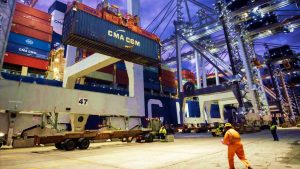
History: Evolution of Stevedoring in the Philippines
Stevedoring, an integral part of the maritime industry, has a long and fascinating history in the Philippines. The evolution of stevedoring services in the Philippines can be traced back to the Spanish colonial era. During this time, Manila became a significant port for trade between Asia and Europe, leading to a surge in shipping activities and the need for laborers to handle cargo.
Initially, stevedores were primarily comprised of local laborers known as “kargador“. These hardworking individuals manually loaded and unloaded goods from ships using basic tools such as ropes and hooks. As trade continued to flourish in the Philippines, stevedoring services in the Philippines evolved to meet growing demands. Modern equipment like cranes and forklifts were introduced, allowing for more efficient cargo handling operations.
The American occupation further influenced the development of stevedoring practices in the country. The American occupation brought about significant changes to the stevedoring practices in the Philippines. The United States introduced advanced technologies and modernized infrastructure, which had a direct impact on cargo handling operations.
Under American influence, stevedores received training on using state-of-the-art machinery and equipment. They learned how to operate cranes, forklifts, and other specialized tools that made their work more efficient and less physically demanding. This not only increased productivity but also improved the overall safety of cargo handling.
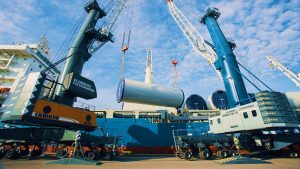
The Role of Stevedores in Maritime Operations
Stevedores play a crucial role in facilitating smooth and efficient maritime operations in the Philippines. As the backbone of port operations, these skilled workers are responsible for loading and unloading cargo from vessels, ensuring that goods are handled safely and efficiently. With their expertise and experience, stevedores contribute to the overall success of the supply chain by maintaining a steady flow of goods in and out of ports.
In addition to their manual labor, stevedores also provide essential services such as warehousing, inventory management, and transportation. These services are crucial for optimizing cargo handling processes and minimizing delays. By carefully coordinating with shipping agents, freight forwarders, and other stakeholders involved in maritime trade, stevedores ensure that cargoes are delivered on time and in good condition.
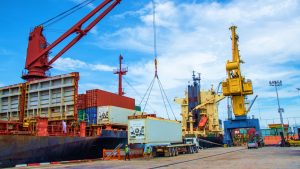
Technologies Revolutionizing Stevedoring Services in the Philippines
Stevedoring services in the Philippines are experiencing a significant transformation thanks to the introduction of cutting-edge technologies. With advancements in artificial intelligence (AI), robotics, and automation, traditional manual labor is being replaced by efficient and streamlined operations. These technological innovations have not only improved productivity but also enhanced safety measures within the industry.
One of the key technologies revolutionizing stevedoring services in the Philippines is AI-powered cargo handling systems. These systems utilize machine learning algorithms to accurately track and manage cargo movement, ensuring swift and error-free operations. By automating processes such as container stacking and sorting, AI eliminates human errors while improving overall efficiency. This technology has enabled stevedores to handle larger volumes of cargo with reduced manpower requirements, leading to increased operational speed and cost savings for businesses.
Additionally, robotics play a vital role in transforming stevedoring services in the Philippines. Robotic technology has revolutionized the stevedoring industry in the Philippines. With the introduction of automated robotic systems, tasks that were once labor-intensive and time-consuming can now be completed quickly and efficiently.
One prime example is the use of robotic arms in container handling. These machines are equipped with advanced sensors and algorithms that allow them to grasp and move containers with ease precisely. This not only reduces the risk of accidents or damages but also significantly speeds up the loading and unloading process.
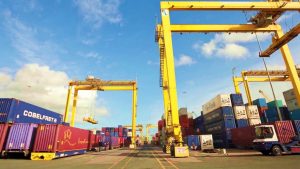
Challenges Faced by Stevedores in the Philippines
Stevedoring services in the Philippines face numerous challenges that impact their operations and overall efficiency. One of the main challenges is the lack of modern infrastructure and equipment at many ports across the country. Outdated facilities not only hinder productivity but also pose safety risks for stevedores, who struggle to handle heavy cargo with limited resources.
Another significant challenge faced by stevedores in the Philippines is the issue of port congestion. With a growing economy and increasing trade volume, ports often become overcrowded, leading to delays in unloading and loading activities. This congestion problem further exacerbates inefficiencies within stevedoring services as workers are pressed for time to complete their tasks, resulting in potential damage to goods or even accidents.
In addition to infrastructure and congestion issues, stevedores also encounter labor disputes that disrupt their operations. These disputes can arise from disagreements over wages, working conditions, or union-related matters.
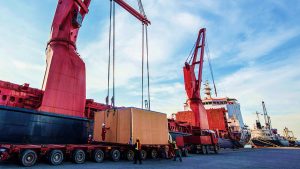
Benefits of Outsourcing Stevedoring Services in the Philippines
Outsourcing stevedoring services in the Philippines has become increasingly popular among businesses and for good reason. One of the main benefits is cost savings. By outsourcing stevedoring services, Filipino companies can avoid the hefty expenses associated with hiring and training in-house staff, providing necessary equipment and tools, and covering employee benefits. With outsourcing, businesses can instead allocate their resources to other important aspects of their operations. The lower labor costs in the Philippines make it an attractive destination for Filipino companies looking to reduce expenses without compromising on quality.
Another advantage of outsourcing stevedoring services in the Philippines is access to a highly skilled workforce. The country has a strong maritime industry with an abundance of experienced workers who are well-versed in handling various types of cargo efficiently and safely. Moreover, many Filipino workers have undergone specialized training programs that enable them to handle complex logistics tasks effectively.

Innovations and Modernization in Stevedoring Practices
Stevedoring services in the Philippines have witnessed a remarkable transformation over the years, thanks to continuous innovations and modernization efforts. From traditional manual labor to cutting-edge technology, the industry has embraced advancements that have revolutionized cargo-handling operations across ports in the country.
One significant innovation that has reshaped stevedoring practices is the introduction of containerization. This breakthrough concept allows for more efficient loading and unloading of goods, reducing turnaround times significantly. With standardized containers and specialized equipment like cranes and forklifts, stevedores can now handle larger volumes of cargo with ease. Moreover, containerization minimizes damage risks during transit and enhances security measures by enabling sealed containers.
Another area where innovation has thrived is in data management systems. These systems have revolutionized the way stevedoring operations are managed and monitored. With the introduction of advanced software and technologies, stevedores can now track and trace containers in real time, ensuring better visibility and control over the movement of goods. This not only improves operational efficiency but also enhances customer satisfaction.
Data management systems also enable stevedores to optimize their resources effectively. By analyzing historical data, these systems can predict demand patterns, allowing for better planning and allocation of manpower and equipment.
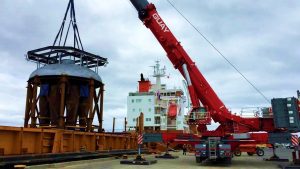
The Future of Stevedoring Services in the Philippines
The Philippines is experiencing a significant shift in its stevedoring services as the industry embraces technological advancements and innovation. Stevedoring, which involves the loading and unloading of cargo ships, has long been a labor-intensive process. However, with the advent of automation and digitalization, Filipino companies are now able to streamline their operations and improve efficiency.
One key trend shaping the future of stevedoring services in the Philippines is the implementation of robotic systems. These state-of-the-art machines can handle heavy loads with precision and speed, reducing the need for manual labor. By adopting such technology, Filipino companies can increase productivity while minimizing human error and workplace accidents.
Additionally, digital platforms are revolutionizing how stevedoring services in the Philippines are managed. With cloud-based solutions and real-time data analysis, Filipino companies can monitor cargo movement throughout its journey from port to destination.
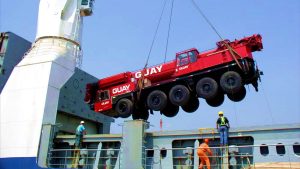
Are You Looking for a Stevedoring Company in the Philippines?
If you are in need of a reliable and efficient stevedoring company in the Philippines, look no further than Full Speed Chartering and Shipping Agency, Inc. With years of experience in the industry, we are committed to providing cost-effective and efficient services to meet all your stevedoring needs. Whether you require loading or unloading services for bulk cargo, containers, or other goods, our team of highly skilled professionals is well-equipped to handle any task.
- Email us: info@fullspeedchartering.com
- Call our 24-hour hotline: +63 939 375 3224
- Viber: +63 939 375 3224
- WhatsApp: +63 939 375 3224
- Facebook Messenger: Click here
- Click here to inquire
At Full Speed Chartering and Shipping Agency, Inc., we understand the importance of time-sensitive operations. That is why we prioritize efficiency in every aspect of our work. Our dedicated team works closely with clients to ensure smooth coordination throughout the entire process. From planning and organizing to executing loading or unloading operations, we strive to deliver exceptional results within the agreed-upon timeframe.
One of our key strengths lies in our commitment to cost-effectiveness. We understand that every business operates on a budget, and we are dedicated to finding the most cost-effective solutions for our clients. Our team is skilled at optimizing shipping routes, consolidating cargo, and negotiating competitive rates with carriers and suppliers.
Additionally, we have established strong relationships with a wide network of trusted partners and vendors in the industry. This allows us to leverage their expertise and resources to streamline operations further and reduce costs.
Summary: Stevedoring Services in the Philippines
In conclusion, stevedoring services in the Philippines play a crucial role in the country’s maritime industry. The art of maritime juggling requires skilled workers who can efficiently handle cargo, ensuring smooth operations at ports and contributing to economic growth. With the continued expansion of international trade and the development of new infrastructure projects, the demand for stevedoring services in the Philippines is expected to increase significantly. Therefore, it is imperative for both the government and private sectors to invest in training and technology to enhance the capabilities of stevedores and further elevate the country’s position as a major player in global trade.
